AO Edited
Pyramides d'Euseigne
These spindly, stone-capped formations are the product of glacial deposits and thousands of years of erosion.
Euseigne is a small village in the Val d’Hérens, one of the southern side valleys located off of Switzerland’s Rhône valley. It is home to a set of unique geological formations known as the Pyramides d’Euseigne.
The pyramids are a type of geological formation known as fairy chimneys or hoodoos. Each one reaches a height between 10 and 15 meters. The tall, thin spires of rock formed during the Würm, the last glacial period in the Alpine region, which ended approximately 11,700 years ago. As the glacier that once covered the Val d’Hérens retreated it left debris behind in its wake. Known as moraine, this debris is made up largely of rocks and soil, which was compressed into a more solid substrate.
Over time, wind and water carved away at these moraine deposits. There were some larger, harder stones mixed in with the glacial debris, which protected the moraine underneath. Thousands of years of these natural processes resulted in a series of tall spires topped with stone caps.
Know Before You Go
An access passes beneath the pyramids, through a small tunnel, and car parks are available along the road below the pyramids.

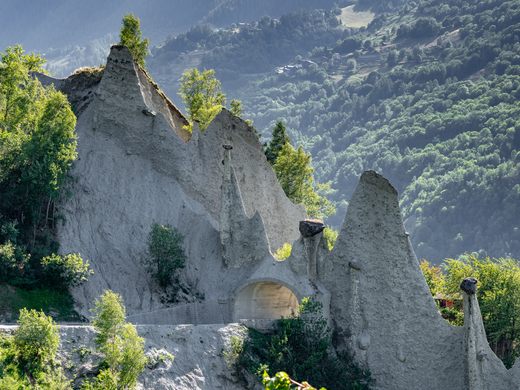
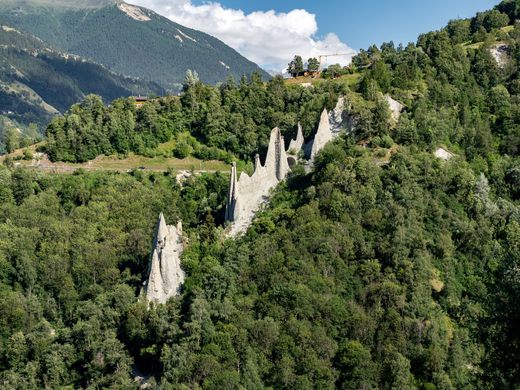
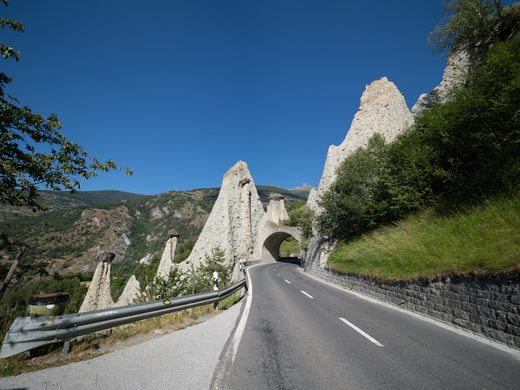


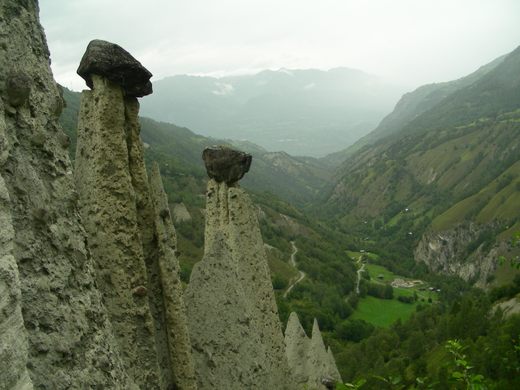


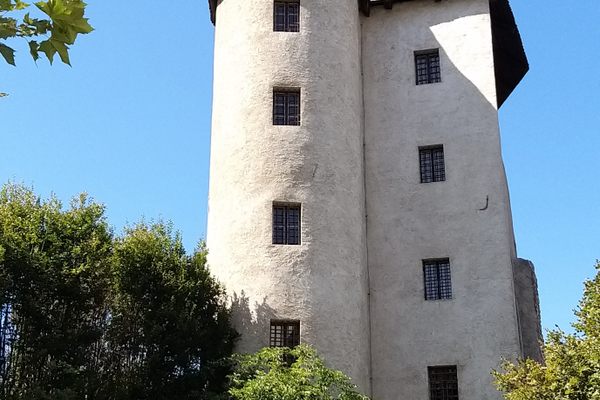
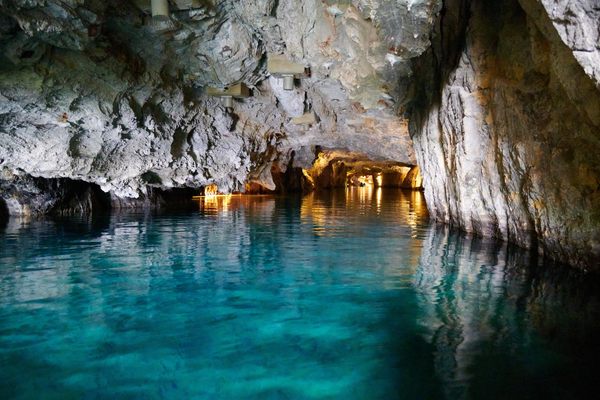
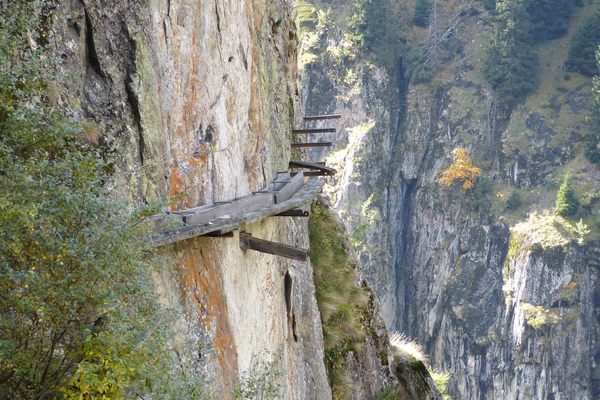
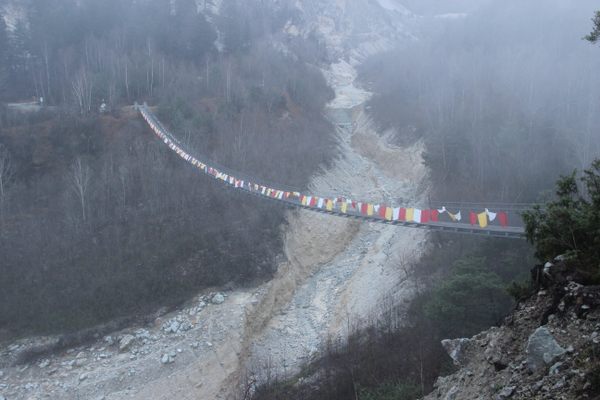


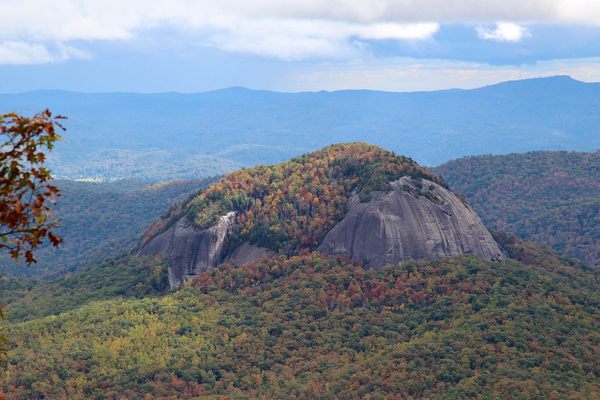
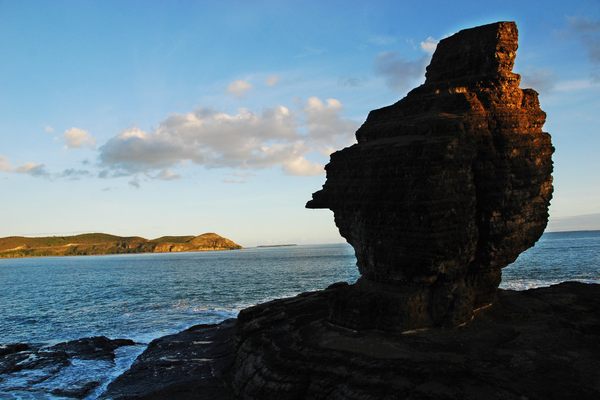

Follow us on Twitter to get the latest on the world's hidden wonders.
Like us on Facebook to get the latest on the world's hidden wonders.
Follow us on Twitter Like us on Facebook